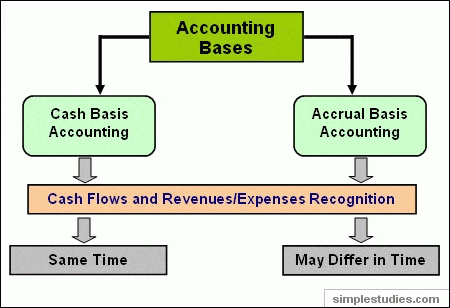Accruals Concept
Accrual Definition

An accrual is a journal entry that is used to recognize revenues and expenses that have been earned or consumed, respectively, and for which the related cash amounts have not yet been received or paid out. Accruals are needed to ensure that all revenues and expenses are recognized within the correct reporting period, irrespective of the timing of the related cash flows. Without accruals, the amount of revenue, expense, and profit or loss in a period will not necessarily reflect the actual level of economic activity within a business.
Accruals are a key part of the closing process used to create financial statements under the accrual basis of accounting; without accruals, financial statements are considerably less accurate.
Under the double-entry bookkeeping system, an accrued expense is offset by a liability, which appears in a line item in the balance sheet. If accrued revenue is recorded, it is offset by an asset, such as unbilled service fees, which also appears as a line item in the balance sheet.
It is most efficient to initially record most accruals as reversing entries. By doing so, the accounting software in which they are entered will automatically cancel them in the following reporting period. This is a useful feature when you are expecting to issue an invoice to a customer or receive an invoice from a supplier in the following period. For example, a business may know that a supplier invoice for $20,000 will arrive a few days after the end of a month, but the controller wants to close the books as soon as possible. Accordingly, he records a $20,000 reversing entry to recognize the expense in the current month. In the next month, the entry reverses, creating a negative $20,000 expense that is offset by the arrival and recordation of the supplier invoice.
Accrual Examples
Examples of accruals that a business might record are:
- Expense accrual for interest. A local lender issues a loan to a business, and sends the borrower an invoice each month, detailing the amount of interest owed. The borrower can record the interest expense in advance of invoice receipt by recording accrued interest.
- Expense accrual for wages. An employer pays its employees once a month for the hours they have worked through the 26th day of the month. The employer can accrue all additional wages earned from the 27th through the last day of the month, to ensure that the full amount of the wage expense is recognized.
- Expense accrual for supplier goods and services. A supplier delivers goods at the end of the month, but is remiss in sending the related invoice. The company accrues the estimated amount of the expense in the current month, in advance of invoice receipt.
- Sales accrual. A services business has a number of employees working on a major project for the federal government, which it will bill when the project has been completed. In the meantime, the company can accrue revenue for the amount of work completed to date, even though it has not yet been billed.
Other Accrual Issues
If a business records its transactions under the cash basis of accounting, then it does not use accruals. Instead, it records transactions only when it either pays out or receives cash. The cash basis yields financial statements that are noticeably different from those created under the accrual basis, since timing delays in the flow of cash can alter reported results. For example, a company could avoid recognizing expenses simply by delaying its payments to suppliers. Alternatively, a business could pay bills early in order to recognize expenses sooner, thereby reducing its short-term income tax liability.

No comments:
Post a Comment